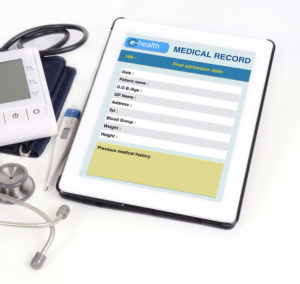Benefits of a Specialty-Specific EHR

Specialty-specific EHRs are nothing new, but at one time, many practices opted for a more broad-based approach. Several have since abandoned such efforts, instead returning to EHRs designed specifically for specialty practices. In a recent survey from Black Book Rankings, 86 percent of the 11,300 respondents highlighted the recent “comeback” to specialty-specific models as the greatest trend in physician technology.
The reason for this flight to specialty-specific EHRs? Low satisfaction with primary care models when applied to specialty situations. In a notable 2012 report from KLAS Research, respondents claimed that electronic health records tailored purely for primary care lacked the specific functions that their everyday work necessitated. As a result, EHR satisfaction scores suffered across a wide range of specialties, including surgery, oncology, and orthopaedics.
Still not convinced that specialty-specific EHRs could be the ideal solution for your practice? The following are just a few of the many advantages specialty-specific EHRs offer:
Specialty-Specific Tools
Broad-based electronic health records often lack the specific tools and functions that health care providers in specific niches require. Furthermore, specialty-specific EHRs remove tools that practices clearly don’t need, thereby eliminating confusion among healthcare workers and making everyday use of the EHR more efficient.
Individualized Documentation
Specialty healthcare workers strive to meet the unique needs of each patient and document their efforts clearly. In the aforementioned Black Book Rankings survey, 93 percent of respondents claimed that specialty-specific EHR templates best-supported patients requiring individualized documentation. This is especially true for specialties that see a greater volume of finite diagnoses. Every patient is different; specialty-specific EHRs better serve their unique needs, while also keeping healthcare employees in the loop.
Enhanced Productivity
Broad-based electronic health records offer ample opportunities for customization, but fitting EHRs to each practice takes time and effort. Many practices intend to eventually customize their EHR, but never actually get around to it. They are then left to navigate complex systems poorly suited to their needs. With specialty-specific options, practices need not waste time on customization; they can immediately begin tracking patient information in a more efficient manner.
Specialty-specific EHRs boast detail-oriented workflows, which are specifically designed to meet the needs of each practice. These workflows ultimately enhance productivity by eliminating redundancies and making EHR use more efficient.
Specialized Knowledge Base
The easier access to relevant information healthcare employees enjoy, the better care they’ll provide their patients. Unfortunately, general EHR systems make it difficult for healthcare professionals to promptly find the information they need. In their frustrating search for relevant information, they may become confused and prone to errors. Conversely, specialty EHRs provide a one-stop shop for employees. Healthcare professionals can rest assured, knowing that the information they need will always be right at their fingertips.
From specialized reporting to efficient workflows, specialty-specific electronic health records provide a wide array of benefits and opportunities for practices in niche fields. In addition to improving short-term efficiency and accuracy, these targeted EHRs boost patient satisfaction and clinical outcomes. They are indispensable for today’s orthopaedic clinics and other specialty practices.


